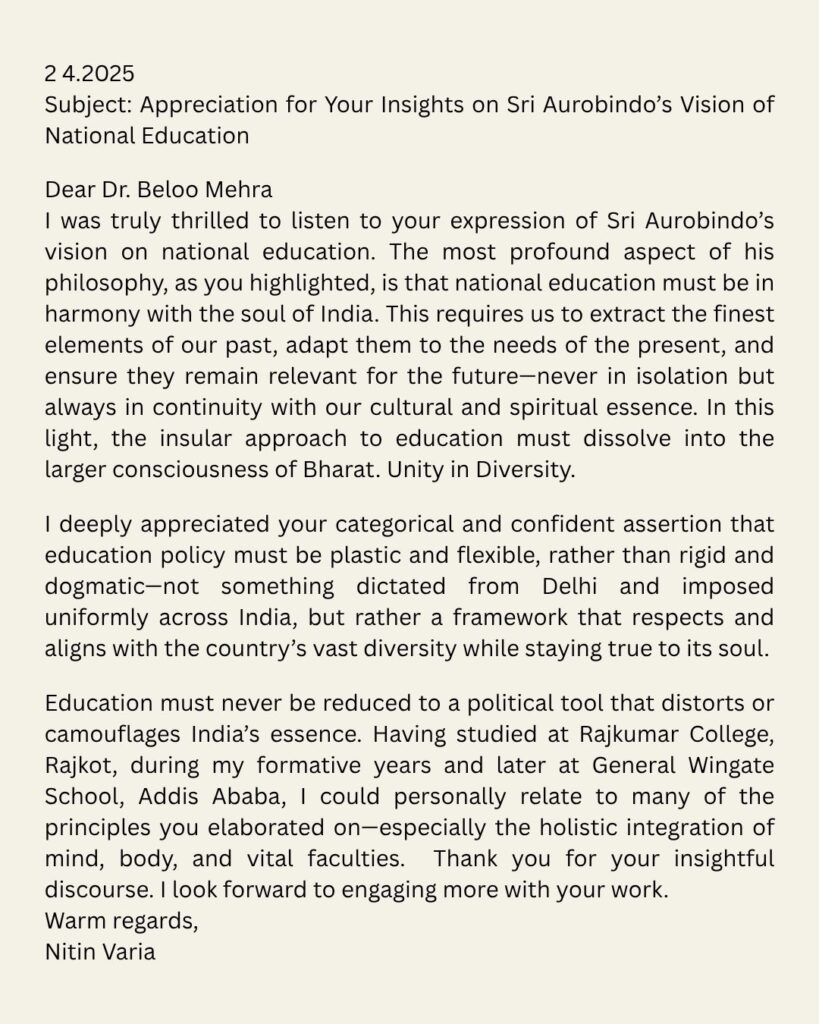Date: January 28, 2025
Time: 4:00 PM
Venue: Department of Philosophy, Jadavpur University
Watch the Recording HERE.
The Centre for Sri Aurobindo Studies, Department of Philosophy, Jadavpur University organizes Sri Aurobindo Memorial Lecture every year to commemorate his birth ceremony. This year Dr. Beloo Mehra, Director, BhāratShakti, Sri Aurobindo Society, was invited to deliver the 40th Sri Aurobindo Memorial lecture on 28th January, 2025.
The Annual Sri Aurobindo Memorial Lecture has been instituted from an endowment made by Late Samar Basu of Sri Aurobindo Ashram, Pondicherry.
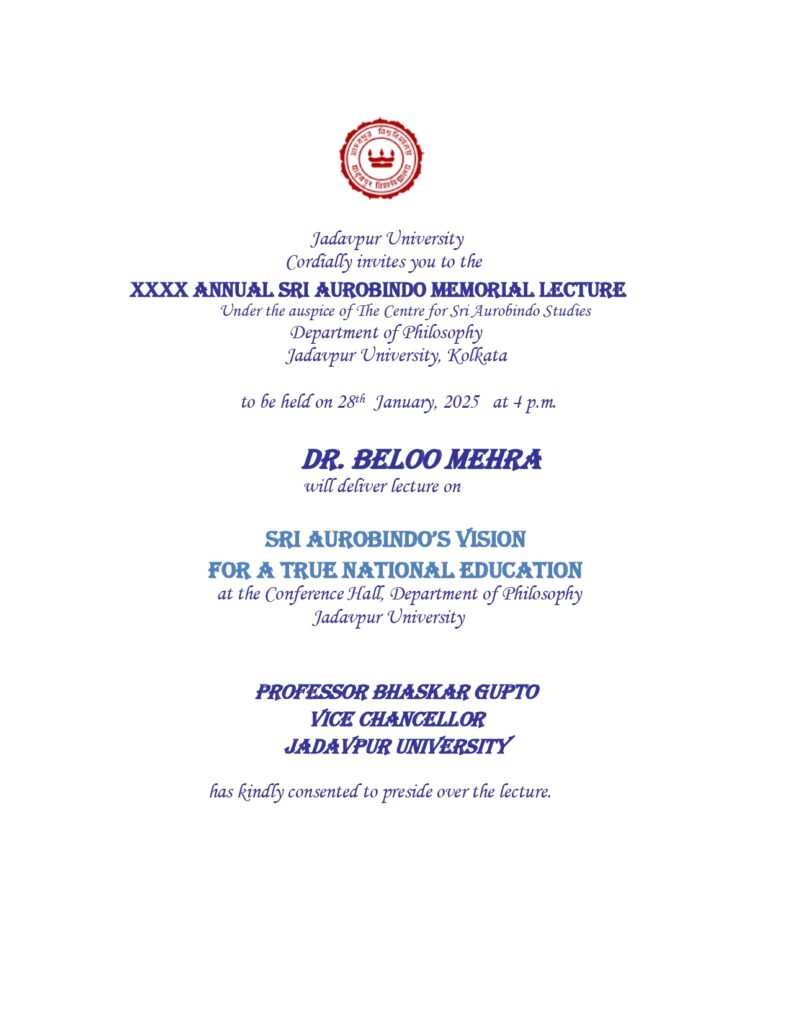
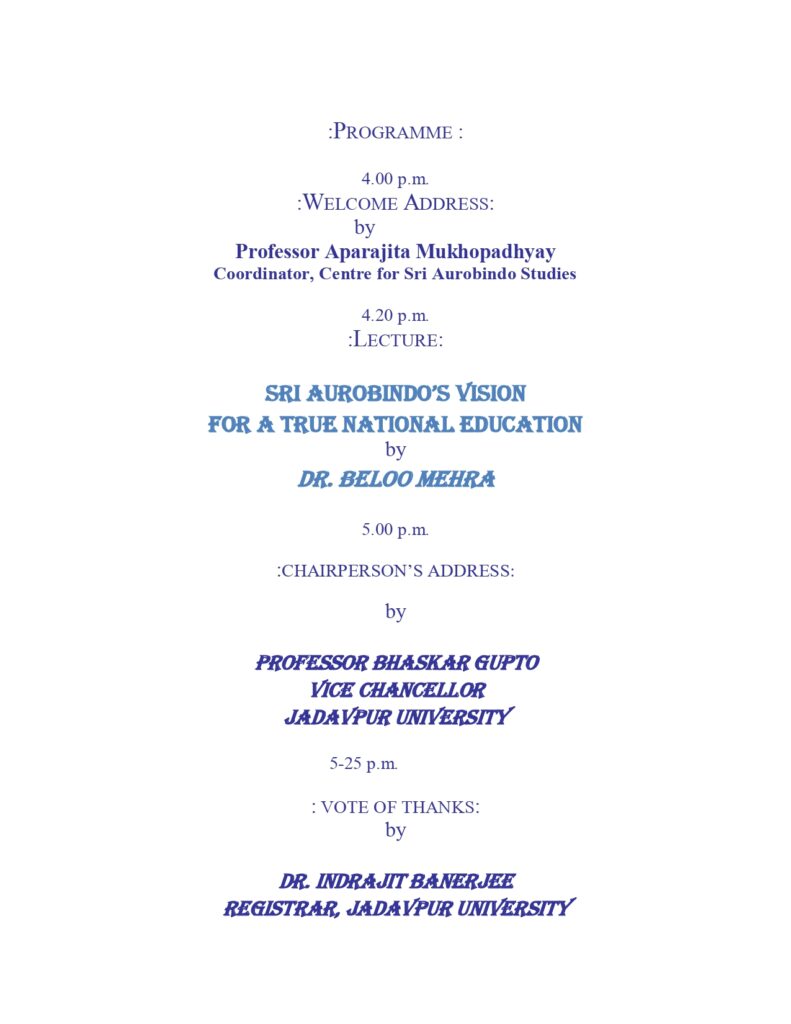
Keeping in consideration the key interest area of Center for Sri Aurobindo Studies at Jadavpur University, Dr. Mehra’s talk was focused on the topic – Sri Aurobindo’s Vision for a True National Education. Prof. Indrani Sanyal, the Founder-director of Center for Sri Aurobindo Studies, Jadavpur University and currently serving as Director of Center for Comparative Religion and Culture, The National Council of Education, Bengal chaired the session.
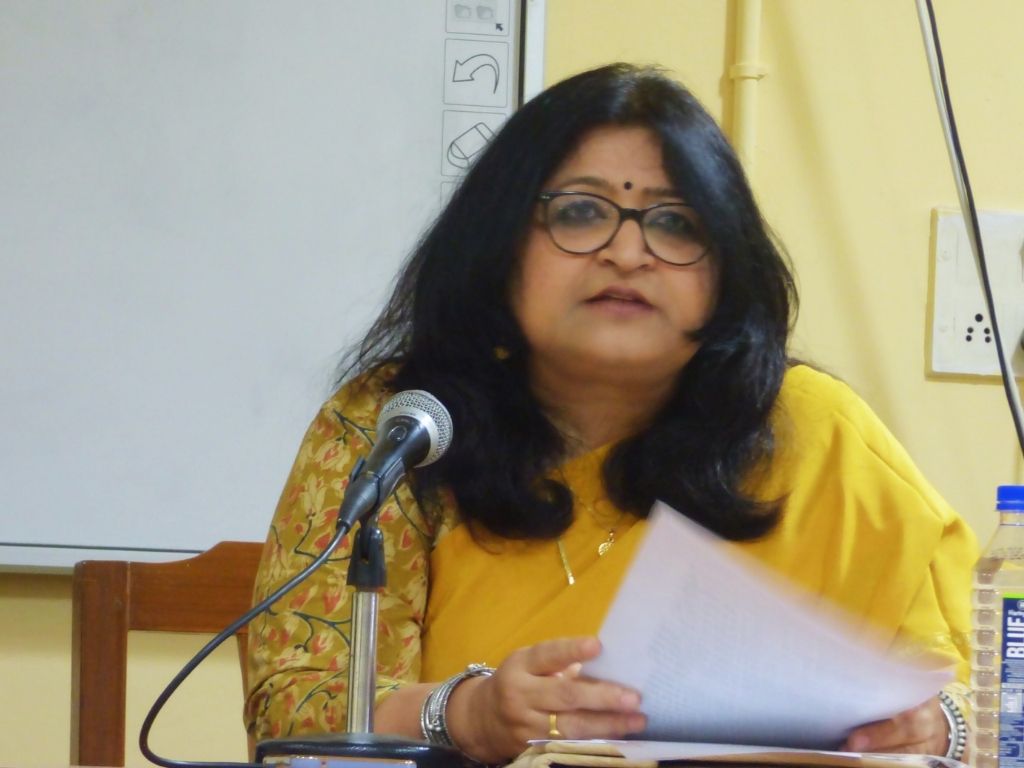
In her brief exploration of Sri Aurobindo’s vision for National Education, Dr. Mehra pointed out that one important insight we get when reading his writings and speeches on this topic concerns the very idea of nation itself. She pointed the audience’s attention to a speech given in Maharashtra on 15 January 1908, in which Sri Aurobindo spoke of the deeper Indian view of nation and explained how we can understand the three bodies of the nation in the same way that we understand the three bodies of an individual – gross, subtle and causal. He spoke of the living soul or spirit of the nation, when he said, “A nation is a living entity, full of consciousness; it is not something made up or fabricated. A living nation is always growing; it must grow, it must attain ever loftier heights.” Sri Aurobindo then said that it was this wider and deeper vision of nation that was kept in front when National Education was conceived in Bengal. This view became the basis for all curricular and pedagogical reform and innovation.
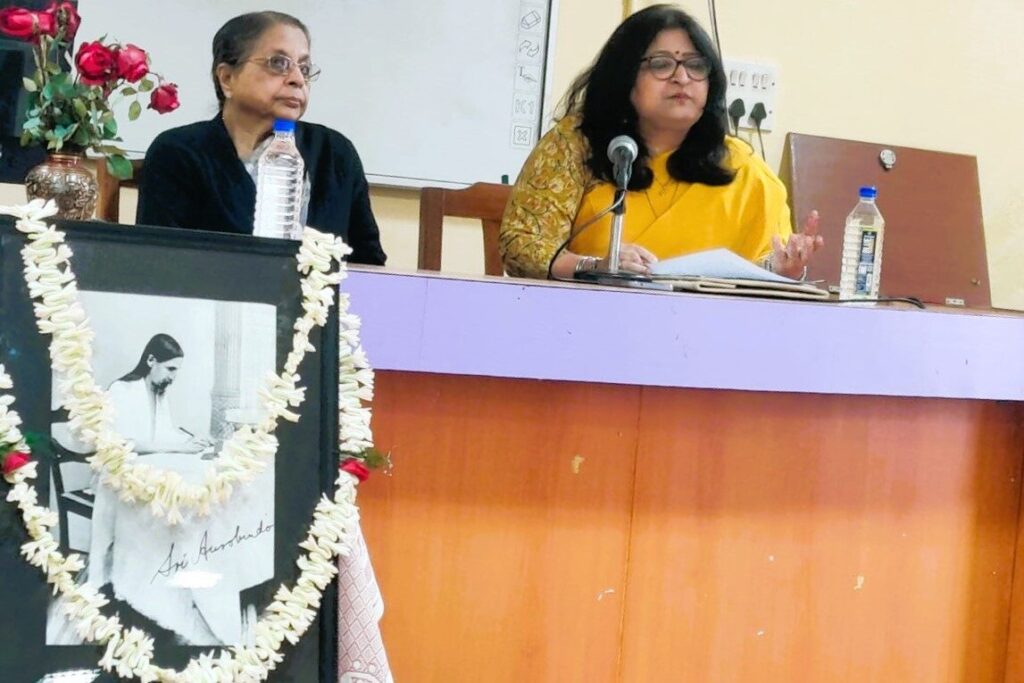
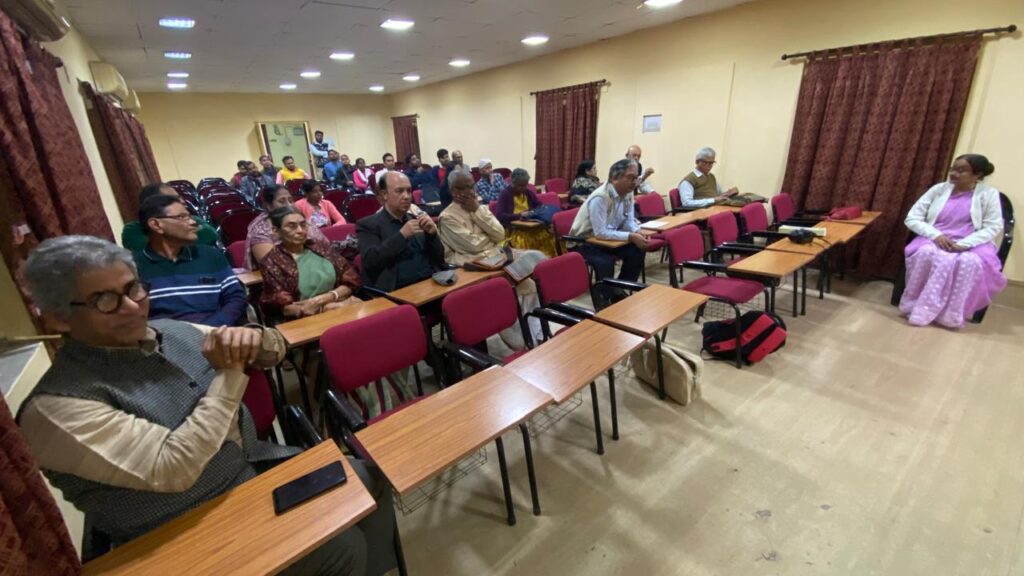

Dr. Mehra pointed out that this speech is an important document as there he actually gave several concrete examples in this regard. She further added that there is something even more significant which we must consider when asking the question – why national education? The answer, she said was given by Sri Aurobindo, when he said, “while imparting a National Education in a national way, we place special emphasis on creating a future Indian nation.”
Dr. Mehra then explored another fundamental question – are there some essentials we must keep in front as we envision an education for India’s future? She reminded that according to Sri Aurobindo, our education will be truly national in spirit when it is “proper to the Indian soul and need and temperament and culture that we are in quest of, not indeed something faithful merely to the past, but to the developing soul of India, to her future need, to the greatness of her coming self-creation, to her eternal spirit.”
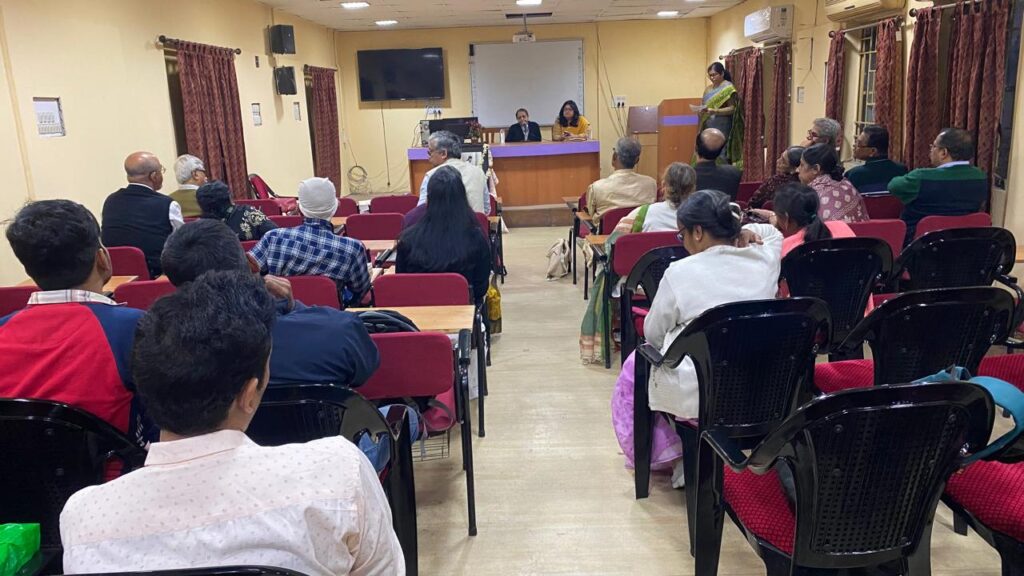
When speaking of what is truly needed for the developing soul of India and for her future need, Sri Aurobindo takes us ‘back to basics’, said Dr. Mehra. He explains that education that must address the needs of three equally significant units – individual, nation, and humanity – which must be the concern of a true and living national education.
An education rooted in the deeper aim of ‘knowing oneself and controlling oneself’ is absolutely indispensable for a true Indian resurgence, said Dr. Mehra, illustrating her point with insights from Sri Aurobindo. Only when the youth truly know who they are as individuals, in the complexity of their being, can they become more conscious of their choices and decisions in life. Only then can they become not only responsible and creative citizens of their country but also more conscious and well-balanced individuals walking on the path of a conscious evolution of the human race. Sri Aurobindo reminds us that at the very minimum, a true national education must aim at the building of the powers of the human mind and spirit, and “the evoking of knowledge and will and of the power to use knowledge, character, culture.”
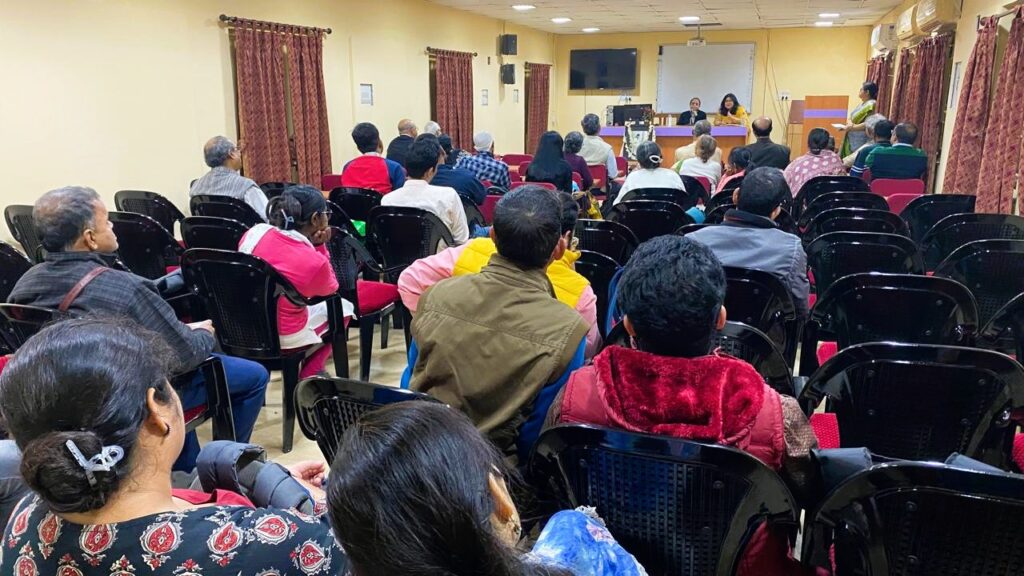
While presenting a brief historical overview of Sri Aurobindo’s own work as an educator in Baroda and his keen observations on the pitfalls of the then-existing education about which he wrote in several pieces in his early writings and also in Bande Mataram, Dr. Mehra said that it is important to recognize that Sri Aurobindo’s vision for India’s National Education was formulated as an important part of his integral vision for Purna Swaraj, complete self-rule for India. He was the first revolutionary to advocate an economic, national, educational, judicial and administrative boycott as a tactic to fight the imperialists. He laid down clear and specific guidelines for setting up Swadeshi, a national education system, a system of national arbitration courts, and a national organisation for self-government.
Dr. Mehra highlighted a few essential points from some specific writings of Sri Aurobindo in which we find a great deal of his vision for a true national education – one which will emphasize the overall development of the learner’s potential faculties and capabilities and at the same time not remove the educational experience from the larger life of the individual and community and nation to which he or she belongs.
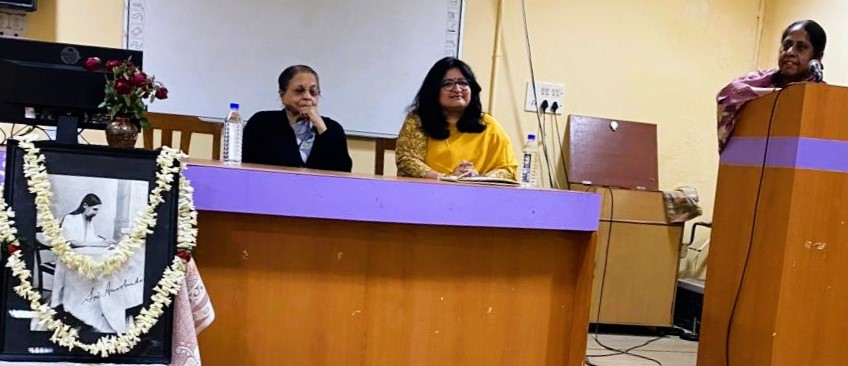
She also highlighted that according to Sri Aurobindo, mere inclusion of the matter of Indian thought and culture in the field of knowledge does not make a system of education Indian. Sri Aurobindo boldly reminds us: “It is not eighteenth century India, the India which by its moral and intellectual deficiencies gave itself into the keeping of foreigners, that we have to revive, but the spirit, ideals and methods of the ancient and mightier India in a yet more effective form and with a more modern organisation.”
This, Dr. Mehra said, is an important note of caution as we work toward strengthening the burgeoning field of Indian Knowledge Systems being increasingly taken up at our universities. Sri Aurobindo wants us to focus on the essential principle which was the basis of our ancient Indian educational thought and practice. Only then we might be able to create new structures and institutions appropriate for our times and expressing the ancient spirit. She then elaborated upon Brahmacharya as that basis of a strong intellectual superstructure.
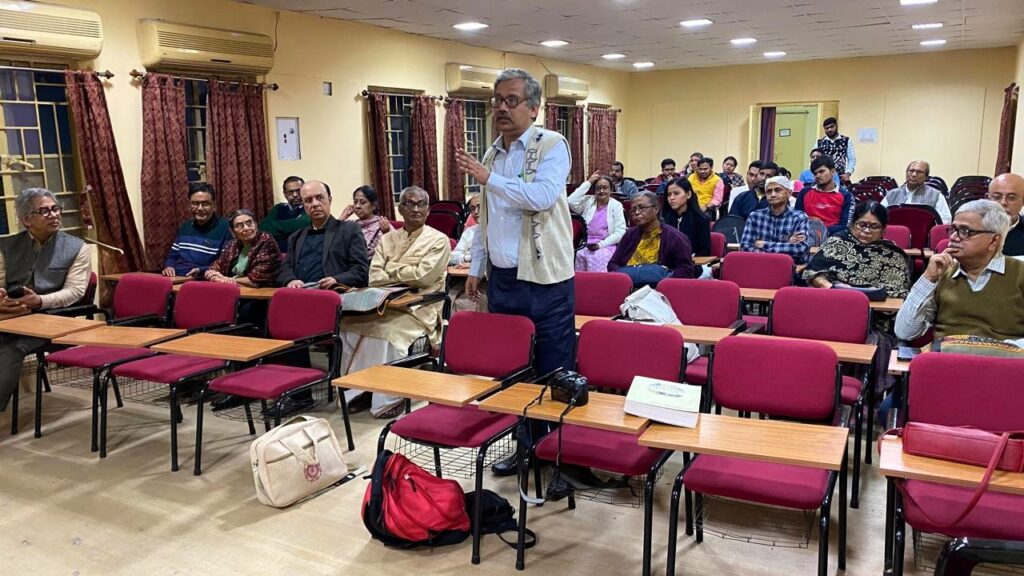
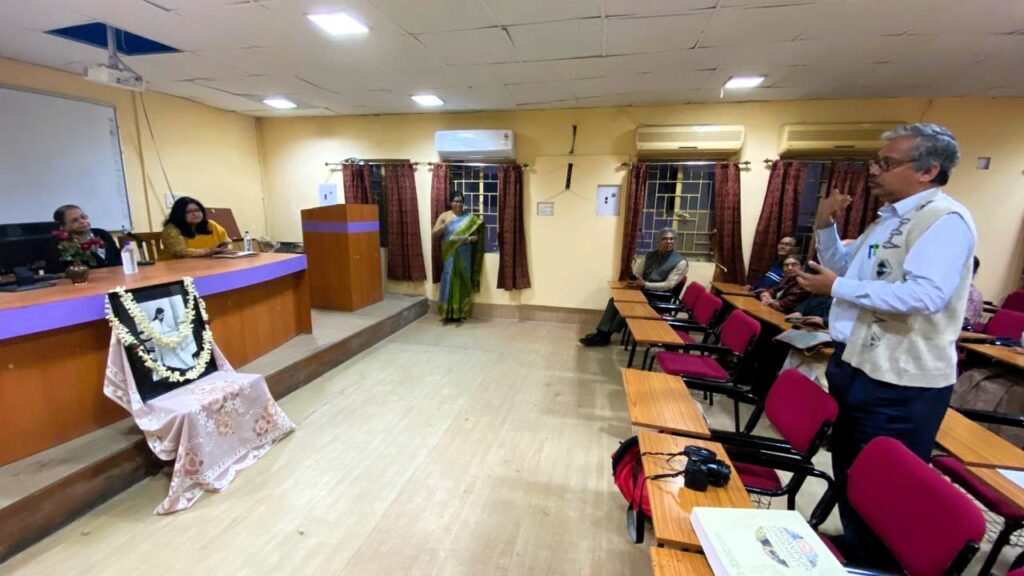
In addition to a well-conceived mental education, Sri Aurobindo also gave equal emphasis on the development of heart, character building and cultivation of aesthetic sense of the learners. These points were also taken up briefly by Dr. Mehra in her talk.
The talk was well-received by the audience. Some interesting questions were raised by a few of the scholars present there. The discussions continued over tea after the official end of the session.
Dr. Mehra also presented copies of her books for the library of Center for Sri Aurobindo Studies. These were presented to the center Director, Prof. Aparajita Mukhopadhyay.
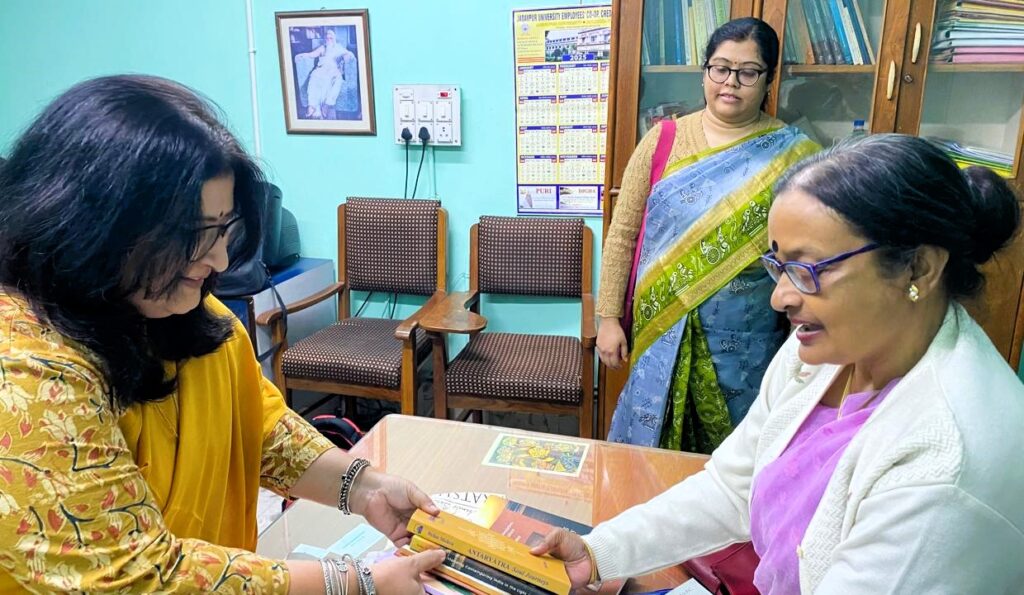
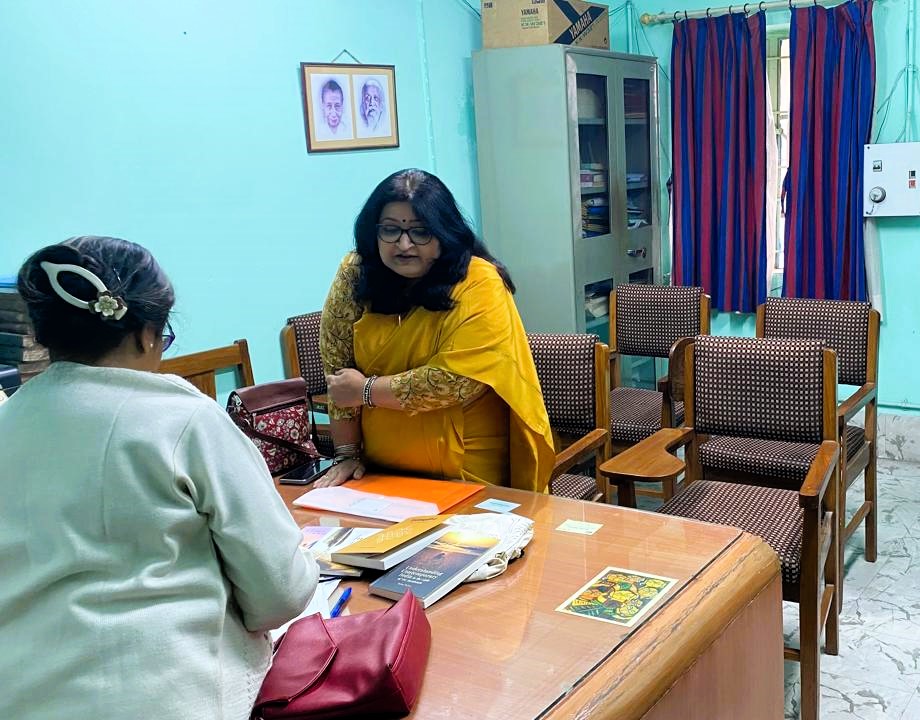
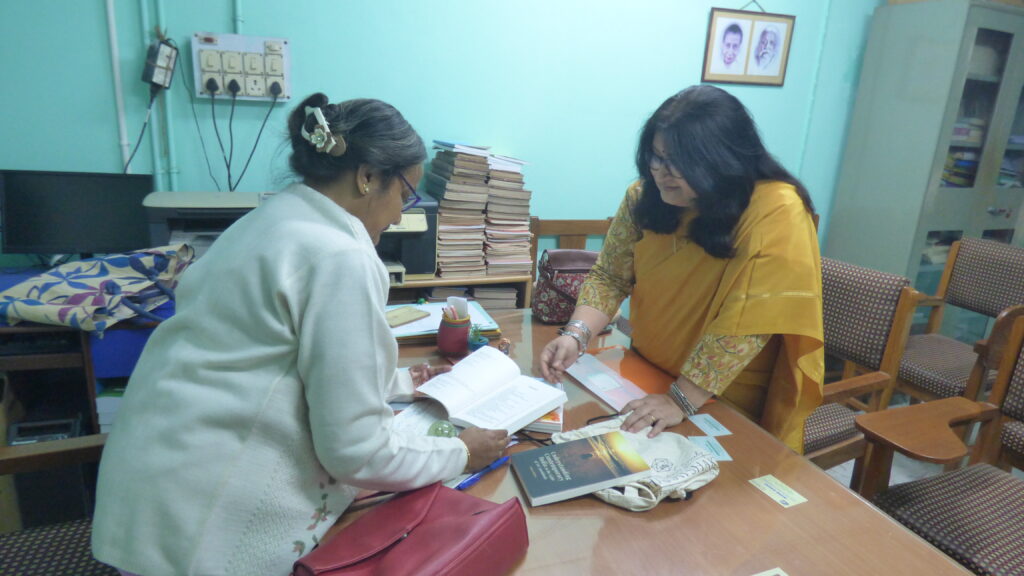
WATCH
A viewer’s response
